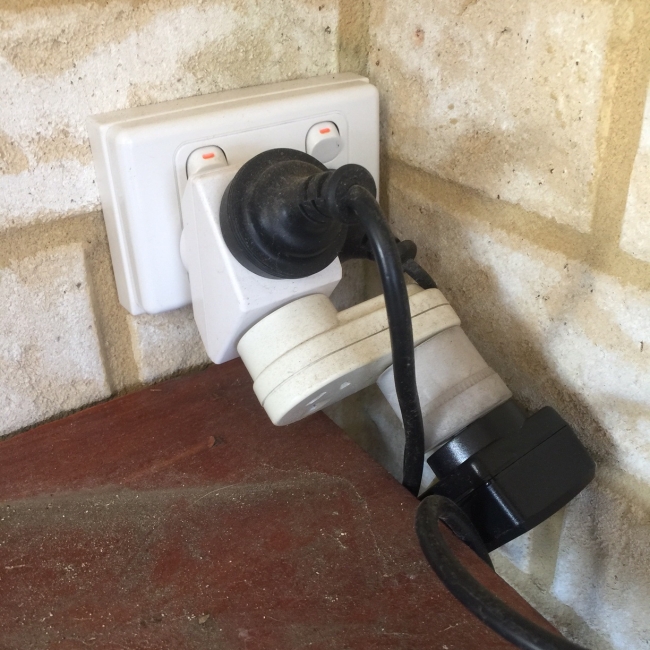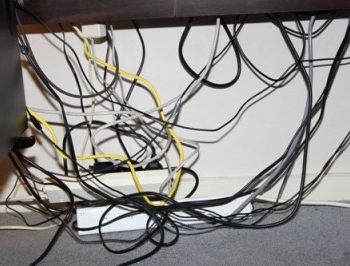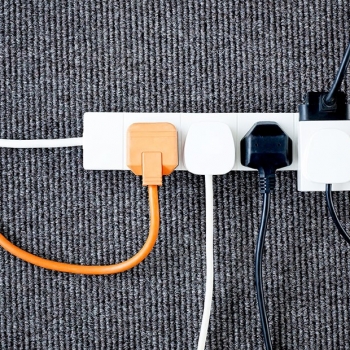Do you have this in your home or office?

Power Boards
Modern life uses lots of electrical devices and equipment within the home or office. When not enough power points are available, there is a temptation to use power boards as a solution. A power point is overloaded when the maximum amperage is exceeded. Overloading and the incorrect use of power boards are common causes of fires in the home and office. The fires can endanger life and cause extensive damage and sadly, most could have been avoidable. Mobile devices including phones and laptops, are often left to charge on rugs, beds or clothes. The heat builds up, the device over heats and a fire can result. The risk of a fire will increase with the use of power boards.

To help you keep safe
Don’t
- Overload power boards by piggy backing plugs using double adaptors – all have maximum load
- Plug in high watt appliances (heaters, toasters, kettles) –plug them directly into a socket on the wall
- Use damaged, discolored, dirty or wet power board
- Ever use water to extinguish a fire caused by electrical equipment

Do
- Use a quality power board with overload protection – to help prevent overheating
- Use a power board with built in safety switch/circuit breaker
- Place the power board on its side to prevent dust build up in unused points
- Provide adequate ventilation around the power point
- Regularly check that all plugs are firmly fixed into power boards
- Regularly check the power board for signs of damage, heat or degradation
The best and safest solution is to Use a Licensed Electrical Contractor to install additional power points instead of using power boards.
Extension Cords
Extension cords should only be used as a temporary measure. It is dangerous practice to connect a power board or double adaptor into the end to make it longer. Placing the leads under rugs or carpets or using near heat sources for example heaters or cookers will increase the risk of a fire. If you find any damaged or frayed extension leads, these should be disposed of immediately or repaired by a licensed electrical contractor. If an extension lead is used outside then this should be checked regularly for sign of damage or weather degradation. Always ensure they are not caught by sharp objects whilst in use.



